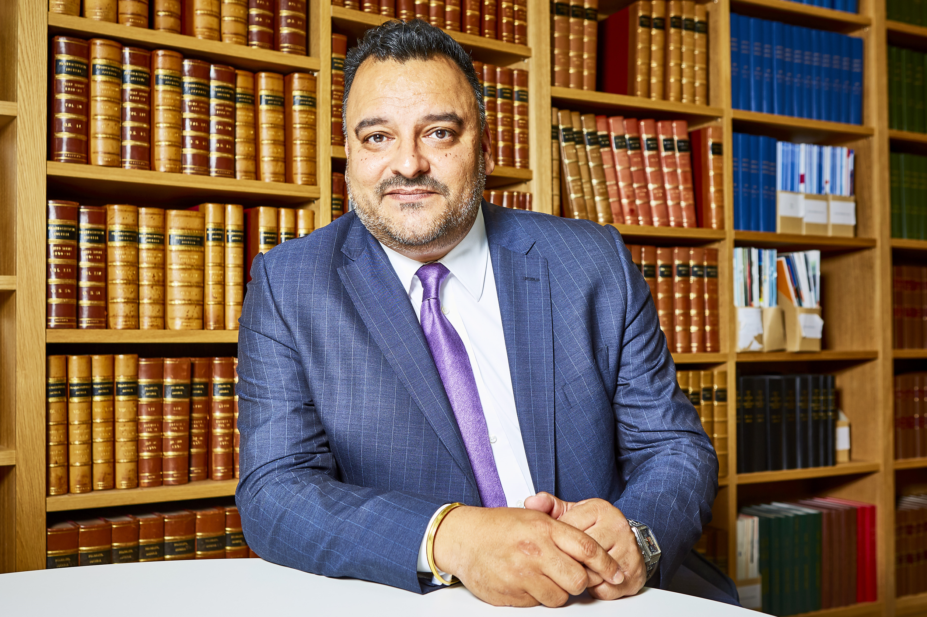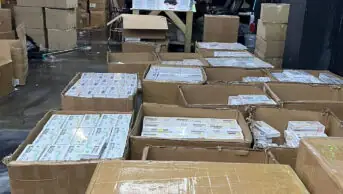
Dave Phillips
Harvinder ‘Harvey’ Sondh, a former community pharmacist, joined the Royal Pharmaceutical Society (RPS) in 2012 as director of marketing and product development with the Pharmaceutical Press (PhP). In 2018, as part of a re-organisation of the RPS executive team, he took up leadership of the newly-formed directorate of innovation and enterprise.
Sondh spoke to The Pharmaceutical Journal about bringing his own experiences of community pharmacy into the publishing world and how his new directorate will seek to develop products and services based on a deep understanding of what members and customers want.
What’s your background?
My background is in community pharmacy. I did my preregistration year with Boots, and then continued my career both as a pharmacist and as a manager in various Boots stores in central London. I was also one of the first area managers to develop and manage dentistry and chiropody services,
which was innovative at that time: especially when you are operating a healthcare service within a large retail setting.
My interest in technology and healthcare was what attracted me to the role
Following the merger between Boots and Alliance, I continued to work with the company, developing new pharmacy services such as health checks and prescription services. I was always interested in technology and how it can help pharmacists carry out their tasks, and also help deliver a high-quality customer experience. So when I joined the RPS in 2012, I started in a role in publishing, taking responsibility for the development of its digital products. This included reimagining the MedicinesComplete platform by working closely with the people who use and purchase it. By using these products, they were able to answer critical clinical decisions relating to medicines, such as checking the correct dose or quickly resolving potentially dangerous drug interactions.
This seems like quite a jump, from community pharmacy to publishing?
Absolutely. My interest in technology and healthcare was what attracted me to the role: I found publishing a great way of combining both those interests. I was the first pharmacist to take up a product role at the Society, and I knew first-hand what pharmacists do — and what problems they face — in practice. I was able to bring that insight into the publishing team.
How did your previous role, as director of marketing and product development with PhP, prepare you to lead the new directorate of innovation and enterprise?
We felt we really needed the space to experiment with and innovate our products and services
I was really excited at the prospect of developing new products and services that resonate with our audience, using my background in pharmacy and my experience of product and business development. I was delighted to head up innovation and enterprise, which, working very closely with my other executive colleagues, is designed to identify and deliver growth.
Why did the RPS create this new directorate?
Paul Bennett, chief executive of the RPS, recognised the need for greater insight into what our customers and members want. Coupled with that was the Society’s ambition to grow, both commercially and professionally.
We felt we really needed the space to experiment with and innovate our products and services. Having a team dedicated to bringing insights back into the organisation, and then evolving our offer, was very much a strategic decision. It will help us in the future by making sure our customers and our members are at the centre of what we do.
How do you know what services customers and members want?
We’re researching this in a variety of different ways. As more people use digital services, data analysis is becoming an integral part of what we do. Teams have been assigned to examine usage on our website and other products, and help them test and learn new ways of improving their performance.
However, you can’t beat going out and speaking to your customer — your end-user. For several initiatives we’re working on at the moment, we’re getting out of the building and speaking to customers and members about what pain points they have; what things they find difficult.
We also need to have the awareness of what’s happening in our market and learn from how other professional bodies are doing, both in domestic and international markets. It allows us to adapt and work collaboratively when we need to, while continuing to put pharmacy at the forefront of healthcare.
Jeremy Macdonald, director of technology at the RPS, and I work closely together — we did when we redeveloped MedicinesComplete and we continue to do so. Technology, for me, is very much the enabler of some of the ideas and the products that we’re hoping to bring to market. Doing this digitally is really the future for lots of products.
What difference will members see from your directorship?
In 2019, we will be introducing a new service that members have asked for
Our members, I hope, will see a product and service offer that puts them at the centre of what we do. Later in 2019, we will be introducing a new service that members have asked for. And we are examining our education and training offer and how it can evolve in coming years.
Will that be working with Gail Fleming, director for education and professional development at the RPS?
Yes. My role is very cross-functional. I believe there’s a huge opportunity for us within the professional development and education market.
What should the RPS be doing for international members and customers?
We already have a sizeable international membership. However, working internationally has to be a deliberate strategy for the organisation. I’ve spent the past few months really understanding what that could look like. We’ve seen from certain events, such as 2018’s International Pharmaceutical Federation (FIP) conference in Glasgow, the reputation that the RPS has globally. We have the opportunity to leverage that further so we can grow our international membership. Also, we are working with other professional bodies so we can identify mutual benefits that we can collaborate on.
How was your recent visit to Jordan to attend the International Pharmaceutical Federation (FIP) Regional Conference for the Eastern Mediterranean?
The visit reaffirmed the fact that the RPS has a good reputation in international markets. This was the first FIP regional conference, and it was a great place to talk face to face with some professional bodies and with international members about what they would like in the way of products and services.
Events such as these give us a platform where we can showcase some of the great work that takes place in the UK, and how that work can help some other countries.
Is the RPS taking a more commercial direction these days?
In my opinion, we shouldn’t shy away from commerciality — as long as it doesn’t come at the expense of professionalism. I think commerciality and professionalism can co-exist, and it’s clear that whatever revenues we generate we reinvest back into the Society to help develop our membership offer and our profession.
What would you like to have achieved by the end of 2019?
I aim to have a better understanding of our members’ needs and to have clarified what members expect from their professional body. We also need to have a distinct international plan that builds on our success.
It’s important that, over the rest of 2019, we start to identify opportunities for the RPS to grow professionally and commercially.
And finally, we must continue on our journey to think creatively and make sound decisions based on data and information; evidence and insight.


